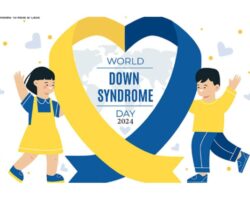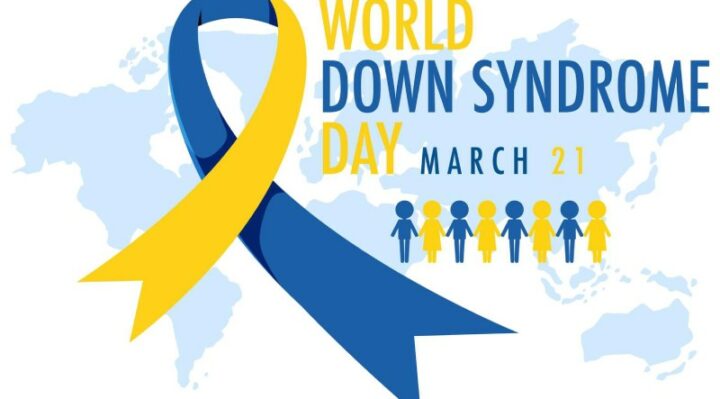World Down Syndrome Day 2024: Overview, Importance, and Practical Approaches to Handle This Genetic Disorder


A rare genetic disease called Down syndrome, also known as Trisomy 21, is brought on by the presence of an extra chromosome called chromosome 21. A “trisomy” is the term used in medicine to describe having an extra copy of a chromosome. A disorder affecting people of all racial and socioeconomic backgrounds, it affects about 1 in 800 babies born globally. Approximately 4,000 to 5,000 newborns are affected by this chromosomal abnormality. People with Down syndrome also have unique physical traits, specific health problems, and cognitive difficulties. In order to encourage inclusivity, empathy, and support for people with Down syndrome, it is imperative that awareness of the condition be raised.
Importance Of Raising Awareness Of Down Syndrome
The topic of World Down Syndrome Day 2024, “End the Stereotypes,” encourages people to stop stigmatising persons with Down syndrome, ideally because of incomplete knowledge or firsthand experience. We may endeavour to create a more inclusive society that cherishes every individual, regardless of their differences, by raising awareness and promoting acceptance. Emphasising the special qualities and skills of individuals with Down syndrome is crucial, as is busting myths and false beliefs that fuel prejudice and other forms of discrimination.
Throughout their life, people with Down syndrome may face a number of obstacles, such as social stigma, barriers to education and work, and inequities in healthcare. Overcoming these challenges and advocating for the rights and welfare of people with Down syndrome are crucial.
Practical Strategies for Assisting People with Down Syndrome
To improve society, it is imperative to comprehend Down syndrome and put into practice practical measures to assist those who have it. Raising awareness will enable people with Down syndrome to have fulfilling lives and make significant contributions to their communities. In addition to dispelling myths, the following strategies can assist those who were born with this genetic condition:
Programmes for Early Intervention
Programmes for early intervention can give families and children with Down syndrome vital help. To help kids develop to the fullest and realise their potential, these programmes provide counselling and instructional materials.
All-Inclusive Education
Encouraging egalitarian learning settings that address the various needs of every student, including those with Down syndrome, fosters a feeling of community and equitable access to education. Additionally, inclusive education fosters acceptance and understanding and aids in the dismantling of social obstacles.
Access to Healthcare
For people with Down syndrome, access to high-quality healthcare services is crucial to meeting their specific medical needs and promoting their general wellbeing. For people with Down syndrome, routine health screenings, early medical issue intervention, and access to specialised care can all significantly enhance health outcomes.
Jobs Available
Encouraging equal employment opportunities and inclusive workplaces can enable people with Down syndrome to live happy, independent lives. they can support people with Down syndrome in all areas of their lives by fighting for anti-discrimination laws, training initiatives, and employment adjustments.
Community Assistance
Taking part in advocacy work and encouraging community support for people with Down syndrome can help dispel misconceptions and increase awareness. We can make the world more egalitarian for those with Down syndrome by banding together to foster acceptance and support.


